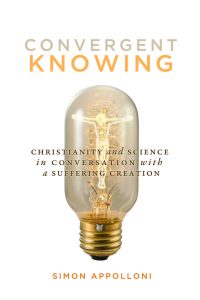How do we arrive at a world that is both environmentally sustainable and just? Simon Appolloni’s new book Convergent Knowing may provide some answers by exploring the relationship between science, Christianity, liberation, and the environment.
“Convergent knowing could be described as blurring the boundaries of knowing. It’s an epistemic framework that offers a certain understanding of how knowledge works,” says Appolloni, adding, “We all know the world in this way, we just don’t always really recognize that we do.”
Exploring and analyzing the work of Rosemary Radford Ruether, Leonardo Boff, Diarmuid O’Murchu, and Thomas Berry, four Christian ethical thinkers who have borrowed from the natural sciences to unite a liberationist agenda with an environmental ethic, Convergent Knowing assists Christian thinkers struggling to integrate science, environment, liberation, and their faith.
While researching his doctoral thesis, Appolloni was drawn to the intersection between religion and science. Because it was, and still remains, an uncommon field of study, he felt strongly that there was much for him to explore and contribute. There was opportunity to challenge existing assumptions, ask difficult questions, and offer a new way of looking at ethics for the future.
A sessional lecturer at the School of the Environment since 2013, Simon Appolloni teaches Introduction to Environment Studies. He received his PhD in the Study of Religion with the Collaborative Program in Environmental Studies, School of the Environment (Toronto). His focus is on the intersection of religion, science, environmental and social ethics. He has taught an array of courses on ethics, worldviews, religion and environment, world religions, religion-science, and cultural heritage, at Brock University, Humber College and U of T.
Publication Type
- Book



